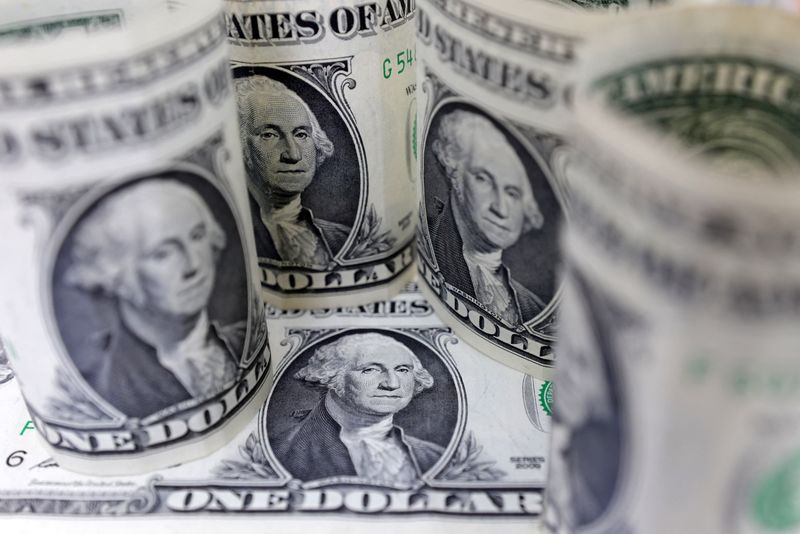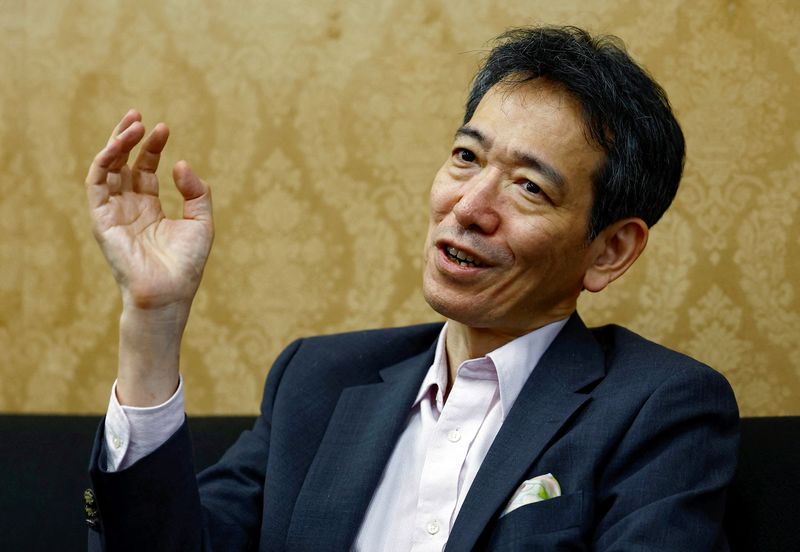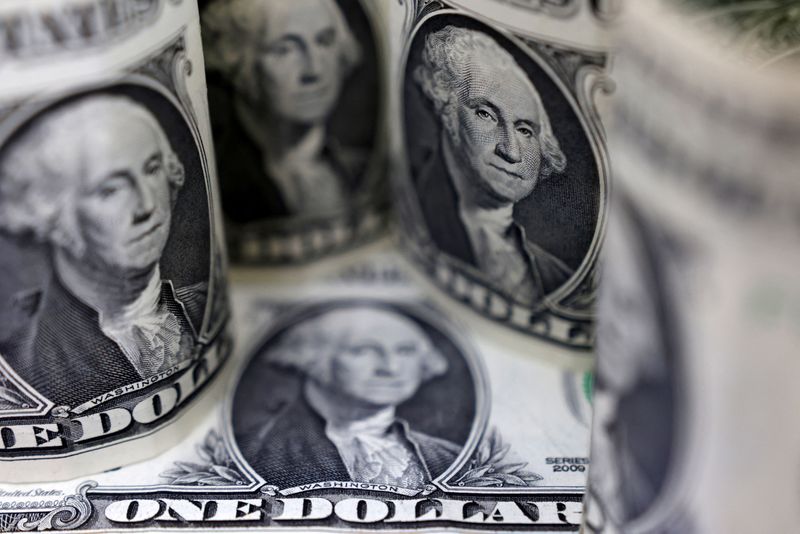Month: October 2024
What The ECB Gets Wrong About Bitcoin
Follow Frank on X.
Last week, Ulrich Bindseil and Jürgen Schaaf of the European Central Bank (ECB) published a paper entitled “The distributional consequences of Bitcoin” in which they made a host of dubious claims about Bitcoin.
The notions that those who are late to investing in bitcoin are impoverished by those who were early to investing in it and that Bitcoin has failed as a payments technology are the authors’ central arguments.
Bitcoin analyst Tuur Demeester sounded the alarm about the report on X.
1/ This new paper is a true declaration of war: the ECB claims that early #bitcoin adopters steal economic value from latecomers. I strongly believe authorities will use this luddite argument to enact harsh taxes or bans. Check 🧵 for why: pic.twitter.com/qg31YenTSC
— Tuur Demeester (@TuurDemeester) October 19, 2024
As a former academic, I was appalled at how lazy the arguments in this paper were. Hence, I’ve taken the time to push back on some of them.
The main premise of the paper is that if bitcoin’s price continues to rise, early bitcoin investors — the “early birds” (the authors’ term) — will gain wealth at the expense of the “latecomers.” While this is true if the early birds hold all of their coins to no end, the dynamic is no different with any other publicly-traded asset. The bigger point that the researchers miss, though, is that some of us are both “early birds” and “latecomers.” I first bought bitcoin in January 2018, and I also bought some last week. Did I impoverish myself in this scenario? No, I didn’t. Nor has anyone who has dollar-cost averaged into bitcoin over any period of time. Also, I bought some gold earlier this year. After doing so, I didn’t shake my fist at the sky yelling “Damn all of you who have front run me to gold over the last 5,000 years!” I simply made the purchase in efforts to preserve my wealth in a highly inflationary environment — one that the ECB itself is partially responsible for causing — and went about my day.One of the other primary arguments in the paper is that Bitcoin has failed as a payment technology. In making this claim, the authors fail to even mention the Lightning Network, a layer built on top of Bitcoin that enables fast, cheap bitcoin payments. In recent years, the Lightning Network has grown exponentially. From August 2021 to August 2023, the network grew by 1212% — which occurred mostly during a bitcoin bear market. Major players from the world of traditional payments are building on Lightning, as well. A prominent example of this is David Marcus, former President of PayPal, who is the current CEO of Lightspark, which is building enterprise-ready payments infrastructure via the Lightning Network. Beyond Lightning, Bitcoin is still quite young and will likely need to be more fully monetized (less volatile in fiat money terms) before people begin using it more frequently using it as money.Throughout the piece, the authors bring up how bitcoin and other cryptocurrencies are the preferred currencies of criminals and bad actors worldwide. While there’s little evidence that proves this to be the case, as methodology of Chainanalysis — the blockchain analysis firm often employed to look into crypto and criminal activity — is questionable at best. Terrorist organizations like Hamas have stopped relying on crypto donations because of their traceability. With that said, TD Bank was just fined $3 billion for enabling money laundering, while Wells Fargo is currently in the crosshairs of regulators for doing the same. And data shows that criminals prefer cash above all else when committing crimes. Lastly, I made two purchases last week with bitcoin and I can assure you that neither were illegal. And I’m not the only one who recently made perfectly legal purchases with bitcoin.
The authors also make the claim Bitcoin is a threat to democracy because crypto PACs now donate to politicians. The presupposes that every other lobbying group out there isn’t a threat to democracy, which is laughable. What the authors also missed is that bitcoin is often a money of last resort for pro-democracy activists who’ve been debanked by authoritarian regimes. One of the first moves in the modern dictator’s playbook is to cut dissidents off from the traditional financial system. In these cases, pro-democracy activists have to rely on bitcoin and other cryptocurrencies. Alexei Navalny, Vladimir Putin’s former opposition, popularized using cryptocurrencies for donations when the Putin regime limited its access to traditional financial rails.The authors also suggest that central banks can just tighten monetary policy to counteract the “bubble” forming in bitcoin’s price. The last two years have proven that this isn’t true, as rates are just about the highest they’ve been in over a decade and a half, yet bitcoin’s price is still on the verge of approaching an all-time high in US dollar terms. Plus, tightening from the US Federal Reserve, the central bank of the US, led to the collapse of Silicon Valley Bank (SVB) as well as other banks in 2023, highlighting the fact that tightening makes the traditional financial system more fragile. This only makes a stronger case for people to store their wealth outside of the traditional system in an asset like bitcoin.
Beyond these points, the tone of this paper from the ECB is paternalistic in that it suggests that all retail investors are incapable of learning more about how markets work and why Bitcoin is important.
Toward the end of the report, Bindseil and Schaaf cite a source that claims that “unsophisticated investors are drawn into the market” as the bitcoin bubble grows, seemingly suggesting that everyone one of these retail investors only buys at the top and sells toward the bottom of a drawdown.
I was once one of those unsophisticated retail investors, and while I first bought bitcoin near its 2017 top, I also bought it on dozens of other occasions, including when its price dipped to local lows in 2018 and 2020. I did so because in studying Bitcoin and learning what problems it solves I came to place more faith in it than I did in the traditional monetary and financial systems.
There are many others like me, and I’d imagine that they too take offense to the ECB’s diminishing their intellectual capabilities and writing deeply biased reports that misrepresent what Bitcoin is and the reasons why people invest in and adopt it.
Upside Down World: Spooks are Heroes, Heroes are Spooks
This space is suffering from a problem of inverted perceptions. What makes Bitcoin valuable in the first place is its decentralized nature. The fact that it is a distributed system, with no central point of control, no central point of influence, not even a central point of interface for its users. This is the source of its resiliency and reliability. Without this property, without the ability to simply download a piece of software and start interacting with it, there is really no value to be found.
It’s fundamentally no different from a bank database at that point. No one can be guaranteed access when someone (the operator) wants to take it away, no core properties like the supply cap or inflation rate can be guaranteed when someone (the operator) can change them at a whim.
Many people in this space cheer on the erosion of these properties at this point. They champion solutions like ETFs and other custodians as a pathway to pumping the price and increasing their own fiat denominated net worth. They attack those working towards and advocating for solutions that don’t compromise the core value propositions of Bitcoin, painting them as spooks “risking what makes Bitcoin valuable.”
It is a complete inversion of reality. The Spooks are Heroes, and the Heroes are Spooks.
Saylor is literally defending custodians as a superior path to adoption than self custody. He is comparing people building and selling tools for self custody to FUDsters and fear mongers, or “paranoid crypto anarchists.” Painting the people who are building the tools necessary to defend and maintain the core properties of Bitcoin that give it value in the first place. He totally ignores the dynamics that led to gold and its role as a sound money to melt away over time as governments interfered and manipulated it.
They accomplished this because all of the gold was held by custodians, no one held it themselves. No one directly used it, everyone choosing to use paper substitutes disconnected from the precious metal itself instead. Bitcoin can very much suffer the same fate. Whether through paper bitcoin diluting market demand, or custodians outright gaining influence over the consensus process and outright changing rules to suit their own needs and wants.
Bitcoin is a social consensus system, its nature is defined entirely by actors who participate in the system. The scale of those actors, their own individual nature(s), the vulnerability to government interference, how many of them make up the majority of economic activity (more being better, less being worse), all of these things factor heavily into how Bitcoin will evolve and exist as a system.
Many people in this space are cheering on short term actions that compromise its resilience in the long term as a neutral and decentralized system for perceived short term benefits in the form of price appreciation and economic gains. Developers working diligently and with little gratitude to maintain those core properties that give it value are attacked as spooks and government agents, while corporate suits and actual spooks attacking those properties are cheered on as heroes.
The world in this space is upside down.
This article is a Take. Opinions expressed are entirely the author’s and do not necessarily reflect those of BTC Inc or Bitcoin Magazine.
A Kamala Presidency Could Be Just as Bullish for Bitcoin
Yes, I know, you’re here to let the hate flow.
You’ve bought all the rhetoric. Donald Trump likes crypto. He is embracing DeFi. He has his own shoes, and coins. He’s going to fire Gary! Like Polymarket in October, you think Trump is boo-llish.
Unfortunately, you’ve bought a lot of another kind of bull.
To unpack this, we have to understand what the Crypto 4 Trump initiative really is – and that’s an alliance of largely public U.S.-based mining firms and exchanges that have come together to spend aggressively to end their mistreatment.
They are tired of being sued and harassed, and otherwise chased out of America. As well, they have every reason to be.
But alas, the industry Bitcoin is not. This was the same argument made to justify the Fork Wars, and let’s just say for summation, that this ended terribly. If U.S. miners are forced elsewhere, mining will continue elsewhere, and decentralizing the hashrate, as we saw in the case of China’s mining ban, is quite simply: Good For Bitcoin™.
Sure, ASIC manufacturing may remain consolidated in a few international firms. Maybe it will take even longer to rebuild. But other countries will take advantage, and the Bitcoin network will carry on. Bitcoin may be our best opportunity to topple all of the current superpowers, and to empower the developing world. If that means leaving the U.S. behind, so be it.
Now let’s address the donkey in the room. A Kamala presidency will mean more enforcement of U.S. securities laws, not a referendum that allows millions of alts to proliferate.
A Trump victory almost certainly ensures only one outcome for our industry, and that is that the SEC gets defanged, and that means “coins beyond Bitcoin” will get a “level playing field.”
By contrast, continued enforcement of the SEC’s securities laws on the industry will rightfully make clear the difference between Bitcoin, which was distributed via proof-of-work (the only known way to circumvent securities sales), and all of the many centralized variants.
Simply put: It’s “crypto assets” that require a regulatory framework to survive, not Bitcoin, which is sufficiently decentralized.
Forcing the crypto industry’s builders to abide by these laws will doubtless benefit developers seeking to extend these capabilities to Bitcoin, the only major crypto with regulatory clarity. Are we actually going to argue that encouraging millions of developers to put their technology on Bitcoin (as opposed to Ethereum or Solana) would be a bad thing?
If there is a coherent thread to Bitcoin maximalism, it’s the assertion that everything outside of Bitcoin is either 1) a scam or 2) can be built on top of its blockchain. A continued crackdown on crypto will push the market to more thoroughly investigate the second point.
Undoubtedly, it would also boost Microstrategy’s stock, MSTR, as it would remain one of the few widely accessible plays to get legitimate beta on Bitcoin.
Sure, maybe the taxes from your Bitcoin gains will be higher, maybe spending will continue to be penalized. But anon, I thought you were HODLing anyway?
So, remind me, of all the supposed pro-Bitcoin policies of a Trump presidency, what is it that you expect to get, other than state-sanctioned degeneracy and block propagation in the heartland?
If you’re a single issue Bitcoin voter, shouldn’t that mean voting for an option that makes Bitcoin more decentralized, and less reliant on U.S. government policy?
Allow me to reintroduce you to Madame President Harris, a bullish choice for Bitcoin.
This article is a Take. Opinions expressed are entirely the author’s and do not necessarily reflect those of BTC Inc or Bitcoin Magazine.
Dollar retains strength on Trump confidence; euro slips after German PPI
Post Content
USD/CHF is reaching its upper limit – UBS
Post Content
Asia FX muted, yuan steady after China rate cut
Post Content
Investors turn short on most Asian FX as dollar strength prevails- Reuters poll
Post Content
US dollar buoyed by retail sales data, euro falls as more cuts underway
Post Content
Japan top FX diplomat says recent yen moves ‘one-sided’ in fresh warning
Post Content
US dollar rally pauses, but uptrend intact; set for 3rd weekly gain
Post Content









